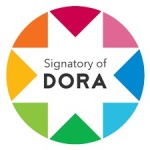Strategic Leadership Practices in hotels, An applied study of Algerian hotels group
Abstract
The Current Study aimed to evaluate the Strategic Leadership Practices prevailing in Algerian hotels, where four practices of the researcher Hitt& all, (2001). The questionnaire was used as a tool to gather the primary data from a simple random sample of 343 employees of Algerian hotels from 15 hotels in 8 states in North, South, East and West Algeria, and the interviews were used to explaining the results. The results of the study confirmed that both leadership practices associated with human capital, leadership practices associated with organizational culture, and leadership practices associated with balanced control were high, while leadership practices associated with future strategic intent were medium. Also There were statistically significant differences in strategic leadership practices due to gender and age. The explanations and recommendations were also proposed.
Downloads
References
خالد كواش. (2000). مقومات ومؤشرات السياحة في الجزائر. مجلة اقتصاديات شمال إفريقيا، العدد 1.، 213-237.
سناء طباخي. (2018-2019). دور القيادة الاستراتيجية في تنمية المعرفة- دراسة حالة مجموعة إريس سات (IRIS SAT ). رسالة دكتوراه في علوم التسيير . قسم علوم التسيير- جامعة بسكرة، الجزائر.
Khaled Kouachi. (2000). Ingredients and indicators of tourism in Algeria. North African Economics Journal, Issue 1., 213-237.
Sana Tabakhi. (2019-2020). The role of strategic leadership in knowledge development - IRIS SAT case study. PhD thesis in management sciences. Management Sciences Department - University of Biskra, Algeria
BABAITA, C. G. (2001). Leadership Style and Culture for Innovation in Hotel Industry”,. the 5th WSE As International Conference on Economy and Management Transformation, Vol. 2. (pp. 526-531). ISBN: 978-960-474-241-7: ISSN: 1792-5983.
Blayney, C. B. (2010). Leadership in the Hotel Industry : Evidence From Canada.International Journal of Management and Marketing Research, Vol. 3, No. 3. , 53-66.
Feng, F. P. (1999). Expatriate Managers in China: Selection Criteria, important Skills and Knowledge Repatriation Concerns, and Cause of failure. International Journal of Hospitality Management, Vol. 18. , 309-321.
MAT, J. .. (2008). The Influence Of Leadership Style On Internal Marketing In Retailing” . Unpublished Submitted impartial Fulfillment of the Requirement For the Degree of Doctor of Philosophy . Faculty of Management, University of Stirling.
Minett, D. Y. (2009). Leadership Styles and Ethical Decision Marketing in Hospitality Management. International Journal of Hospitality Management, Vol. 28. , 486-493.
Patiar, A. &. (2009). Transformational Leadership Style, Market Competition and Departmental Performance: Evidence from Luxury Hotels in Australia. International Journal of Hospitality Management, Vol. 28. , 254-262.
Pimapunsri, P. (2008). Factors affecting Learning Organization Culture and hotel managers’ Leadership Styles in Thailand. Educational Journal of Thailand,Vol. 2, No. 1 , 34-43.
Weerakit, N. (2007). Leadership Competencies Required for Future Hotel General Managemer’s Success in Thailand. Unpublished thesis Submitted to the Faculty of the Graduate , In Partial Fulfillment of the Re, Collge of the Oklahoma State University.
Wong, A. C. (2010). Understanding the Leadership Perceptions of Staff in China’s Hotel Industry: Integrating the Macro and Micro Aspecs of Leadership Contexts”, International Journal of Hospitality Management, Vol. 29,. ”, International Journal of Hospitality Management, Vol. 29,. , 437-447.
Worsfold, P. (1989). Leadership and Management Effecttiveness in the Hospitality Industry.International Journal of Hospitality Management, Vol. 8, No. 2. , 145-155.
Wu, T. T. (2006). A Study of the Relationship Between Manager’s Leadership Style and Organizational Commitment in Taiwan’s International Tourist Hotels. Asian Journal of Management and Humanity Sciences, Vol. 1, No , 434-452.

This work is licensed under a Creative Commons Attribution-NonCommercial 4.0 International License.















